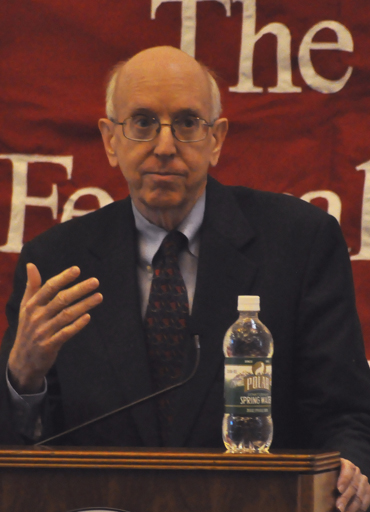Copyright 2007-25 Digital Media Law Project and respective authors. Except where otherwise noted,
content on this site is licensed under a Creative Commons Attribution-Noncommercial-ShareAlike 3.0 License: Details.
Use of this site is pursuant to our Terms of Use and Privacy Notice.
content on this site is licensed under a Creative Commons Attribution-Noncommercial-ShareAlike 3.0 License: Details.
Use of this site is pursuant to our Terms of Use and Privacy Notice.



 In what is now their
In what is now their  It’s been
It’s been  If you've been living in Boston, you've undoubtedly heard the recent uproar over a local website publishing a photo of Ben Brady, the 20-month-old son of New England Patriots quarterback Tom Brady and supermodel Gisele Budchen, playing with his parents on a Costa Rican beach.
If you've been living in Boston, you've undoubtedly heard the recent uproar over a local website publishing a photo of Ben Brady, the 20-month-old son of New England Patriots quarterback Tom Brady and supermodel Gisele Budchen, playing with his parents on a Costa Rican beach. Two legal developments in Nevada and Colorado last week make Righthaven (previous post
Two legal developments in Nevada and Colorado last week make Righthaven (previous post  Celebrity blogger
Celebrity blogger  Well, it turns out this
Well, it turns out this  Rejoice, all ye Olympian fans, the International Olympic Committee ("IOC") has said that its athletes can use Twitter!
Rejoice, all ye Olympian fans, the International Olympic Committee ("IOC") has said that its athletes can use Twitter!

Description:
On January 14, 2011, Obsidian Finance Group, LLC, and Obsidian Senior Principal Kevin Padrick filed a defamation suit in Oregon federal court against blogger Crystal Cox. The complaint alleged that Cox had written a number of false and defamatory statements on her website, obsidianfincancesucks.com, and on "other websites." The statements quoted in the complaint involve "tax fraud," "fraud against the government," "hir[ing] a hitman," and other statements.
Obsidian moved for partial summary judgment, arguing that Cox's statements on her blog constituted defamation as a matter of law. Obsidian argued that because Cox had "no evidence to support the truth of any of her statements," the judge should grant summary judgment as to the question of liability, leaving the question of damages for trial. Padrick also filed a declaration denying the truthfulness of Cox's statements, and included copies of Cox's blog posts.
On May 4, 2011 Cox answered Obsidian's complaint, filed an opposition to Obsidian's motion for summary judgment, and made a number of counterclaims. Her counterclaims alleged conspiracy, harassment, and defamation.
After Obsidian and Cox traded another round of briefs on the summary judgment motion, and after Obsidian answered Cox's counterclaims, the judge ruled against Obsidian on the summary judgment question. The opinion focused on the fact that Cox's contested posts were "replete with scattershot, hyperbolic accusations," and that the "broad context" of the posts (including the name of the blog) meant that Cox's assertions were "less likely to be viewed as statements of fact." The judge also announced his intention to, sua sponte, grant summary judgment in favor of Cox. He then gave Obsidian two weeks to file a brief in opposition of this new summary judgment ruling.
Obsidian then filed an opposing brief; Cox did not respond. The judge then granted summary judgment for Cox as to all but one blog post. The judge wrote that "blogs are a subspecies of online speech which inherently suggest that statements made there are not likely provable assertions of fact." He again found that the blogs' incendiary titles would cause readers to "view [the posts] with a certain amount of skepticism and with an understanding that they will likely present one-sided viewpoints rather than assertions of provable facts." The judge cited blogs' "setting and format," which create a "looser, more relaxed communication style" less likely to be seen as factual. Furthermore, the judge found that the "general tenor" of Cox's posts suggested that she had a "personal vendetta" against Obsidian, which "undermine[d] the reader's expectations" that Cox's assertions were factual.
The judge also described Cox's language – "a fanciful diatribe" – as undercutting a reader's expectation of factual information. And while certain statements from Cox's post could, in isolation, be seen as arguably factual, when "the content and context of the surrounding statements are considered," they would not be understood as assertions of fact.
The judge did deny summary judgment as to one post Cox made on another website, bankruptcycorruption.com. He found that because the post was removed from the less factual context of obsidianfinancesucks.com, read more like a "factual narrative," and contained some "fairly specific allegations," it would be possible for a fact-finder to read the post as asserting facts.
Obsidian then moved for summary judgment on Cox's counterclaims, and Cox filed a memorandum in support of her claims.
On October 14, 2011, Obsidian moved for sanctions against Cox, arguing that she had not been cooperating in discovery.
UPDATES:
November 2, 2011: the district court allowed attorneys fees but denied further sanctions against Cox, and ordered Cox to comply with discovery requests. On November 9, Obsidian filed a motion to compel, requesting answers to multiple interrogatories and discovery requests. Cox objected, relying upon, inter alia, Oregon's right of retraction statute (O.R.S. § 31.215) and Oregon's media shield law (O.R.S. §§ 44.510–44.540). In a verbal order on November 28 the judge denied application of the right of retraction and shield law.
November 29, 2011: The case went to a one-day trial. The jury in the case found for the plaintiff Obsidian for $1,000,000, and for Kevin Padrick for $1,500,000. The jury instructions for the case make no mention of a negligence or other fault requirement for defamation in Oregon, specifically stating that the defendant's knowledge of the statement's truth or falsity was irrelevant to the determination.
November 30: In a written order, the district court judge clarified his oral ruling from November 28. The judge noted that Oregon's right of retraction law applies only to statements made in print or broadcast media, and does not apply to Internet blogs. As for Oregon's media shield law, the court found that the law only applies to a person "conected with … any medium of communication to the public," and that the statute defines "medium of communication" as "any newspaper, magazine or other periodical, book, pamphlet, news service, wire service, news or feature syndicate, broadcast station or network, or cable television system." The court declined to include blogs as part of that definition, and noted that even if it did, O.R.S. 44.530(3) states that the provisions of the shield law "do not apply with respect to the content or source of allegedly defamatory information, in civil action for defamation wherein the defendant asserts a defense based on the content or source of such information."
As for the substantive claim of defamation, the court rejected several First Amendment claims made by Cox. The court found that Obsidian and Padrick were not public figures as defined in New York Times v. Sullivan, that the jury did not have to find that Cox was negligent when publishing her statements under Gertz v. Robert Welch, Inc. because Cox is not a "media" defendant, and that the statements Cox made were not on a matter of public concern.
January 4, 2012: Cox filed a Motion for a New Trial and in the Alternative for Remittitur. The Motion argued that, for three separate reasons, the Court should grant a new trial. First, Cox argued that even if plaintiffs were treated as private figures, under Gertz the jury should have been instructed that she could be held liable for proven compensatory damages only if the jury found negligence, and for presumed damages only if the jury found actual malice. Second, Cox argued that because Kevin Padrick was a court-appointed bankruptcy trustee, he should be treated as a public official with respect to his duties. Third, she argued that a new trial or remittitur is required because the evidence presented did not support a finding of $2.5 million in damages.
January 11, 2012: Electronic Frontier Foundation ("EFF"), a non-profit digital rights organization, filed an amicus brief in support of Cox's Motion for a New Trial. In its brief, EFF supported Cox's arguments that the court should have instructed the jury to apply a negligence standard in order to find her liable for defamation, and that the damage award lacked evidentiary support. Additionally, EFF urged the court to reconsider its finding that Cox was not a "media" defendant. EFF argued that Oregon's retraction statute should be interpreted to include Internet publishers, because "Internet publication is no different ... than the broad publication methods identified in the statute." EFF also argued that Cox should be protected under Oregon's shield law, because she was "engaged in a medium of communication to the public." EFF maintained that the court, in ruling against Cox on both issues, created an "unnecessarily hostile" environment for Internet speech.
January 30, 2012: Plaintiffs opposed Cox's motion for a new trial. Plaintiffs argue that any objection over the jury instruction is waived by a failure to timely object to the motion under FRCP Rule 51. Plaintiffs further argue that the minimum-fault rule in Gertz should not apply to this case, and that Oregon's shield law and retraction statute are inapplicable.
March 27, 2012: The district court denied Cox's motion for a new trial. The court first rejected Cox's argument that Padrick should be considered a "special purpose" public official. According to the court, private bankruptcy trustees do not qualify as public officials of any sort. The court also ruled that the "matter of public concern" category was not so broad as to encompass Cox's allegations.
The court next rejected Cox's argument, based on Gertz and other cases, that defamation defendants can only be held liable for compensatory damages if the jury finds negligence. After an extended discussion of Supreme Court case law, the district court concluded that "the question of what standard of liability to apply to a private plaintiff who sues a non-media defendant over allegedly defamatory statements made on a private issue, remains unanswered" as a matter of constitutional law. While the Supreme Court has repeatedly stated that media defendants receive no more First Amendment protection than other defendants, the district court stated that the Supreme Court has not yet "squarely held" that negligence is required in cases like Cox's.
After briefly disposing of EFF's arguments under Oregon's retraction statute and shield law, the district court also ruled that "the evidence supports the damages awarded to each of the plaintiffs," and denied Cox's motion on this ground as well.
March 30, 2012: Cox filed her notice of appeal to the 9th Circuit Court of Appeals.
April 24, 2012: Plaintiffs filed a notice of appeal. They appealed (1) the district court's order denying their motion for partial summary judgment and giving notice that it intends to grant summary judgment for the defendant, (2) the court's supplemental opinion denying their supplemental motion for summary judgment as to blog posts not previously submitted and granting summary judgment for the defendant with respect to all but one blog post, and, (3) the court's oral ruling ordering that their expert witness could not testify to the influence on buyers of derogatory statements appearing in a search engine results page.
October 10, 2012: Crystal Cox filed her opening brief. Cox argued, among other things, that she is entitled to a new trial because the district court gave faulty jury instructions on the fault standards applicable to her claim.
First, Cox asserted that Gertz applies to all public speakers, regardless of whether they are members of the institutional press. Therefore, she argued, even if the plaintiffs are private figures, the jury should have been required to find that she acted negligently in order to hold her liable for damages, and, in order to find her liable for presumed damages, the jury should have had to find that she acted with actual malice.
She further argued that her speech was on a matter of public concern, because allegations that a person is involved in crime generally constitute speech on matters of public concern, particularly allegations of fraud within a government program. She distinguished Dun & Bradstreet v. Greenmoss Builders, Inc. on the basis that her speech was (1) not solely in her interest or that of her specific business audience, (2) available to the public at large, (3) not solely motivated by desire for profit, and (4) not objectively verifiable.
She also argued that allegations of tax fraud by a court-appointed bankruptcy trustee do not lose their public concern status even if they deal with an incident that has not yet been a matter of public discussion. She argued that, as a matter of policy, it is unwise to grant lower protection to speakers unearthing a single instance of misconduct than to those covering a broader national problem or large-scale issue after particular misconduct is discovered. She notes that the absence of an existing controversy may be relevant to whether the plaintiff is a public figure, but not to whether the speech is on a matter of public concern.
Cox relied on dictum in Newcombe v. Adolf Coors Co. to argue that the Ninth Circuit has found Gertz to require a showing of negligence even in private concern cases, and therefore, even if she is found to have spoken on a matter of purely private concern and the plaintiffs are found to be private figures, the court should have instructed the jury that she was only liable if she was negligent.
With respect to the plaintiffs' status as private or public figures, Cox argued that a court-appointed bankruptcy trustee should be treated akin to a public official with regard to the performance of his duties, and that, under New York Times v. Sullivan, the district court therefore should have instructed the jury that the plaintiffs had to prove actual malice. She cited to several state court cases finding that when a court-appointee has government-delegated duties affecting citizens' money or property, those holding such positions should be considered public officials with regard to the performance of their duties. She further argued that that the protections of Sullivan apply to her, regardless of whether she was a member of the institutional media, citing several Supreme Court cases that have applied the case to non-media speakers.
October 17, 2012: The Reporters Committee for Freedom of the Press filed an amicus curiae brief in support of reversal. The Committee noted that the distinction between media and non-media defendants in private-figure libel suits creates heightened interest in broadly defining the term "news media."
Although the Supreme Court has interpreted Gertz to prohibit strict liability in state defamation laws only when the laws are applied to speech on matters of public concern, the Committee argued that it is unresolved whether Gertz is limited to media defendants and that several states do not apply Gertz to nonmedia defendants. This distinction, the Committee argued, makes the definition of "media defendant" critically important in libel cases.
As such, the Committee urged the court to interpret the term "media defendant" broadly enough to include any content provider who has the intent, when gathering information, to disseminate it to the public.
The Committee stated that the Supreme Court has long recognized that the definition of "press" does not depend on the medium of distribution and that many courts, including the Ninth Circuit, have held that testimonial privilege applies to individuals engaged in the practice of compiling information for public dissemination, regardless of their membership in the traditional press. According to the Committee, in the same way that an author's function, not the medium of publication, triggers a shield law's protection, an author's function should determine whether he or she could be classified as a member of the media entitled to the protections afforded by Gertz.
Finally, the Committee argued that courts must apply a broad definition of whether speech is in the public interest for purposes of establishing the standard of fault in libel cases. The Committee examined a number of Supreme Court and Ninth Circuit cases that demonstrate that, when evaluating speech's public nature, courts interpret public concern broadly and look to the "point" of speech by evaluating factors like the target audience and the speaker's motivation. In this case, the Committee argued that, by narrowly focusing its public concern analysis on speech that exposes public corruption, the lower court failed to comply with the broad principles outlined by the Ninth Circuit and the Supreme Court. Therefore, the Committee recommended that the Ninth Circuit reverse the lower court's ruling and remand for a more thorough assessment of whether Cox meets the public concern test under the proper constitutional standards.
October 17, 2012: SCOTUSblog filed an amicus curiae brief in support of neither party. SCOTUSblog stated that, while it takes no position on the merits of the dispute, it filed a brief to illustrate how the criteria for liability applied by the district court could generate incorrect results in the case of a blog that provides a public service and should receive First Amendment protections
The brief notes that SCOTUSblog could be subject to allegations of libel and defamation like those asserted in this case, because it publishes strongly worded critiques that may offend their subjects.
Moreover, SCOTUSblog asserted that it could not satisfy several of the criteria articulated by the district court, leaving it vulnerable to an adverse decision in a defamation case: only one of the blog's contributors has any training in journalism, the blog does not have media credentials or proof of affiliation with any recognized news entity, it does not as a general rule do any fact-checking, and it does not maintain notes of conversations, interviews, or research. Given that the court did not specify how many characteristics the defendant would need to posses to qualify for First Amendment protections afforded to "media," the blog expressed concern that it would not qualify. This risk of liability would, it argued, have a chilling effect on the content the blog posts, which will result in less complete coverage of the Supreme Court.
SCOTUSblog therefore requested that the Ninth Circuit establish that non-traditional news sources that provide a useful public service by gathering, analyzing, and disseminating information receive the same First Amendment protections afforded to traditional news sources, even if they cannot make the showings the district court outlined in this case.
December 7, 2012: The plaintiffs filed their response brief and cross-appeal. According to Obsidian and Padrick, Cox failed to preserve objections to the jury instructions at trial. The plaintiffs further argued that the trial court did not commit a plain error that warranted reversal despite Cox's failure to object, because "First Amendment protection of false speech [is] the exception, not the rule." Any error that did occur was harmless, plaintiffs claimed, because "Cox's undisputed conduct establishes negligence and a reckless disregard for the truth or falsity of [her] statements."
On cross-appeal, plaintiffs argued that the district court erred in finding that certain of Cox's blog posts were non-actionable opinion and granting Cox summary judgment on those blog posts. Plaintiffs noted that these posts, which purported to be "Truthfully Posted," asserted that the plaintiffs had committed numerous crimes, including fraud, bribery, money laundering, and possibly hiring a hit man. According to the plaintiffs, "[t]here is nothing figurative or hyperbolic about these accusations," and it "is not necessarily a reasonable assumption" that "reasonable readers will view blogs as inherently less reliable than other sources of information." Thus, they argued, the trial court should have left the question of whether these posts contained opinions to the jury.
February 4, 2013: Cox replied, arguing that, even under plain error review, the judgment below must be reversed because: Gertz applies to all public speakers; Cox spoke on matters of public concern; Gertz applies even to speech on matters of private concern; and Padrick was a public official for purposes of the Sullivan analysis. She also asserted these arguments were preserved for review because the trial court was "aware of Cox's position that she was entitled to First Amendment protections" and had rejected her objection earlier in the trial. Additionally, Cox argued that the district court correctly held that the other blog posts at issue were not libelous. Cox conceded that Internet speech "is not categorically immune from defamation liability," but, based on the context of the statements at issue, Cox claimed, "even the statements that might in isolation seem like factual assertions would be seen by reasonable readers as opinions."
January 17, 2014: The Ninth Circuit issued its opinion. The court held that "liability for a defamatory blog post involving a matter of public concern cannot be imposed without proof of fault and actual damages."
The court, reviewing the judgment de novo, concluded that Gertz's protection for defendants in private defamation actions is not limited to institutional media defendants; the court held that a "First Amendment distinction between the institutional press and other speakers is unworkable" and constitutional protections cannot turn on the identity of the speaker-regardless of whether "the defendant was a trained journalist, formerly affiliated with traditional news entities, engaged in conflict-of-interest disclosure, went beyond just assembling others' writings, or tried to get both sides of a story." The court noted that the Supreme Court has "repeatedly refused in non-defamation contexts to accord greater First Amendment protection to the institutional media than to other speakers," and that every other circuit to consider the question has found that Gertz applied broadly to non-institutional speakers.
The court did not decide whether Gertz is limited to speech involving matters of public concern, because it found that Cox's statements addressed such issues. The court stated that "[p]ublic allegations that someone is involved in crime generally are speech on a matter of public concern," and the allegations in this case "raised questions about whether [defendants] were failing to protect the defrauded investors because they were in league with their original clients." This allegation was not merely a matter of private concern because it was not "solely in the individual interest of the speaker and its specific business audience," was published at large, and was not "like advertising" and therefore "unlikely to be deterred by incidental state regulation."
The court refused to apply Sullivan's actual malice standard, however, holding that bankruptcy trustees are not "tantamount to public officials."
On the plaintiffs' cross-appeal, the court affirmed the district court's grant of summary judgment on the other blog posts at issue in the original suit. The court found that the "general tenor of Cox's blog posts negates the impression that she was asserting objective facts," and that the name of the website-obsidianfinancesucks.com-"leads ‘the reader of the statements [to be] predisposed to view [the blog posts] with a certain amount of skepticism.'" The court also relied on the fact that Cox's stream of consciousness-like sentences indicated that they were expressions of "feelings rather than assertions of fact." Cox's "consistent use of extreme language," including her assertion that one of the plaintiffs had hired a hit man to kill her, also weighed in favor of finding that the blog posts did not assert facts. Finally, the court held that the statements at issue were not "sufficiently factual to be proved true or false" because they were published on a "non-professional website containing consistently hyperbolic language."
The court remanded the case to the district court to conduct a new trial on the single post still at issue in compliance with Gertz, stating that the district court must instruct the jury that it cannot find Cox liable for defamation unless it finds that she acted negligently and that it cannot award presumed damages unless it finds that Cox acted with actual malice.